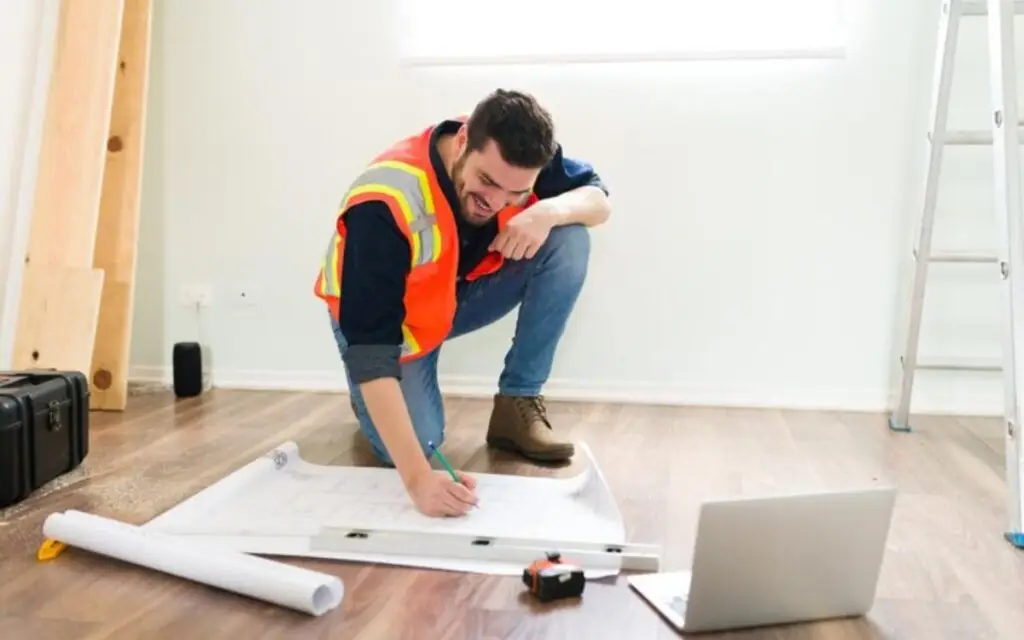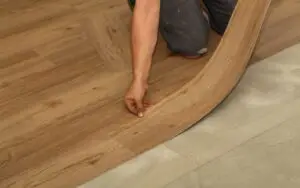Understanding a Flooring Estimate
Why a Detailed Estimate is Important
Transparency
A detailed flooring estimate is essential for transparency, and will always clearly outline all of the costs that are associated with your flooring project. This will include material costs, labor costs, and any other fees that might be incurred, and it will ensure that you are aware of all of the costs before any work begins. Transparency in your estimate will protect both you, and the flooring installer, from any unexpected problems, or charges.
Accurate Budgeting
A detailed estimate allows you to accurately budget for your flooring project. Knowing all of the costs upfront will prevent surprises, and allow you to make informed decisions about your flooring choices. A detailed estimate will also help you to stay within your budget, and it will provide you with peace of mind throughout your entire project.
Avoiding Hidden Costs
A detailed estimate can help you avoid hidden costs that may arise during a flooring project. These types of hidden costs can quickly add up, and they often lead to overspending and added stress. A detailed estimate will include all known costs and will also allow you to ask questions about any potential extra charges. Professional installers will always avoid hidden costs, and will ensure that you are aware of all expenses, before any work begins.
Essential Elements of a Flooring Estimate
Project Details
A detailed flooring estimate should always include the project details, such as the type of flooring being installed, the square footage of the area, and any other important details that will affect the installation process. Having all of these details listed clearly will help both you, and the installer, to ensure that all aspects of the job are understood.
Material Costs
A flooring estimate should always include a clear breakdown of the material costs, including the type of flooring, the underlayment, the transition strips, and any other materials that will be used. This is essential for understanding where your money is being spent, and will also help you to verify that you have chosen the best materials that fit your budget. Professional installers will always list all materials on the estimate, and will also provide you with samples, and descriptions of each material.
Labor Costs
The flooring estimate should also include a clear breakdown of all labor costs, including the installation, subfloor preparation, and any removal and disposal of old flooring, and it should also include an hourly rate, or a total cost for the labor. This type of information will help you understand what is being paid for in the estimate, and should also be discussed with the installer, so you can verify all of the details.
Key Components of a Flooring Estimate
Material Costs
Type of Flooring
The estimate should specify the exact type of flooring you have chosen, such as hardwood, tile, vinyl, or carpet, and it should also include the specific brand, and model number, so you know exactly what you are getting. Professional installers are always very transparent about the materials that they are using, and will be glad to provide all of the information that you request.
Quantity and Dimensions
The estimate should also clearly state the quantity of flooring that is needed, including its dimensions, and it should also include all extra material that is needed to account for waste and any potential problems. This information is essential to making sure all materials are ordered correctly, so the project can be completed without delays. Professional installers will always take all of the necessary measurements, and make sure the correct materials are ordered.
Underlayment
The estimate should also specify the type and cost of any underlayment that is being used. This should also include the brand, and the model number, of the underlayment, so that you will know that the correct product is being used. Proper underlayment is essential for all flooring installations, and should always be included in any estimate from a professional installer.
Transition Strips
The estimate should also include any transition strips, or other types of edge pieces that are needed for the project. These types of materials should always be listed in the estimate, and should be discussed with the installer, so that you are aware of their costs and specifications. Professional installers will always be able to offer suggestions for the best types of transition strips for your project.
Labor Costs
Installation
The estimate should have a detailed breakdown of all installation costs, and it should also include all of the labor charges, including an hourly rate, or a total cost of labor. It is also essential to understand what these labor costs will include, to ensure that all aspects of the install are included. Professional installers will always be clear about all of these labor charges, and will also be happy to answer any questions that you might have about them.
Subfloor Preparation
Subfloor preparation should always be included in a detailed flooring estimate, especially if you have older floors, or if you have any issues with moisture. Proper subfloor preparation is essential for a successful installation and should always be performed by a professional installer. The estimate should list all of the charges related to subfloor preparation, so you are aware of what to expect.
Removal and Disposal of Old Flooring
The removal and disposal of the old flooring should also be included in the flooring estimate, especially if you need this service. Make sure to clarify how the old flooring will be removed, and disposed of, and always ask if the installer provides recycling services, to prevent old flooring from ending up in a landfill. Professional installers will often include all of these services, and can also provide recycling as an option.
Additional Costs
Permits and Inspections
Depending on your location, there may be costs associated with permits and inspections. It is very important that you always confirm if a permit is required, and if it is, that you always obtain one. Professional installers will always be familiar with all of the local requirements, and can often guide you in the proper steps to take, and help to ensure that all permits are obtained before beginning any work.
Taxes and Fees
The estimate should also clearly state any taxes or fees that are associated with the project. Sales tax, and other fees may vary depending on the location, and they should always be included in the estimate, to ensure there will be no surprises, and to guarantee that your budget is accurate. Professional installers are always aware of all the required taxes and fees.
Potential Change Orders
The estimate should also mention the potential for change orders, and how they will be handled. Sometimes unexpected issues may arise during a flooring project, and professional installers will always be prepared for these situations, and will also be prepared to provide you with an updated estimate if a change order is necessary. It is also important to discuss how these types of issues will be handled, before any work begins.
Evaluating a Flooring Estimate
Red Flags to Watch Out For
Vague Language
One of the most important things to look for is any vague language, such as “estimated cost”, or “may include”. This type of language can be a red flag that the installer does not have a clear plan, or may be using this language to try and hide unexpected costs. A professional installer will always be clear and precise about every aspect of their estimate.
Unrealistic Low Prices
Unrealistic low prices are also a major red flag. While it may be enticing to choose the cheapest option, it is also important to be aware that very low prices are often a sign that the installer may be using lower quality materials, or may be cutting corners with the labor, which will always result in a lower quality product. It is always wise to choose an installer who has competitive pricing, while also providing the highest quality of workmanship.
Lack of Detail
A lack of detail is another major warning sign. A professional installer will always be willing to provide a detailed estimate that is easy to understand, and if they are unable to provide you with a detailed quote, they may not be the best choice for your flooring project. A detailed estimate will always protect you, and the installer, by preventing any unexpected problems.
Asking the Right Questions
Material and Labor Breakdown
You should always ask for a detailed breakdown of all material and labor costs. This will help you understand where your money is being spent and will also ensure that there are no hidden fees or unexpected charges. A professional installer will be able to clearly describe all of the different costs, and will always be willing to answer any questions that you may have.
Warranty and Guarantees
You should also always ask about any warranties and guarantees that the installer is offering, and always ask to have the warranties in writing, to ensure they are accurate, and understood by all parties. Professional installers always offer warranties, and guarantees, and they are always very clear about all of their details.
Payment Schedule
It is also important to discuss the payment schedule, before starting any project, so both parties are clear about all terms, and conditions, of the project. A professional installer will always be open about all of their payment requirements, and will ensure that all of your questions are answered clearly, and precisely.
Professional vs DIY Flooring Estimates
DIY Estimation Challenges
Errors in Measurement
DIY estimates are always prone to errors, such as incorrect measurements, and also due to the homeowner not knowing which type of materials, are best suited for their specific project. These types of errors will almost always lead to over or under ordering the materials, and can add to the overall costs, and delays, of the project.
Underestimating Costs
DIY estimates also often underestimate costs, as most DIYers will not be aware of all of the potential hidden fees, or other issues that might arise during the project. Also, if a DIYer does not have all of the correct tools for the job, they will also have to purchase or rent all of these expensive tools, which will often be more expensive than if they had simply hired a professional to begin with.
Benefits of Professional Estimates
Accuracy and Precision
Professional estimates are always accurate and precise, which ensures you receive an accurate quote that you can rely on. Professional installers have all of the knowledge, experience, and tools, to make sure they never make any mistakes during their initial estimate, and that the project is completed without any surprises.
Expertise and Experience
Professional installers also bring expertise and experience to the estimating process, and will always be able to provide detailed answers, to all of your questions. Their knowledge of all aspects of flooring installation will always provide you with a clear understanding of all of your options, and the different processes involved in the project.
Guaranteed Estimates
Professional installers often provide guaranteed estimates, meaning that the price quoted will be the final price, unless you make any changes to the original plan. Guaranteed estimates provide peace of mind, and protection from unexpected fees, or costs that might arise during a project.
Case Studies: Estimate Issues
Example of a Vague DIY Estimate
A homeowner attempted a DIY flooring project, and created a vague estimate based on the square footage of the room, without taking into consideration all of the additional costs, the types of materials that were required, or the potential for any issues or unforeseen costs. They ended up spending more than double what they had initially estimated, and they also did not have a warranty to protect their investment.
Example of a Detailed Professional Estimate
Another homeowner hired a professional installer, and requested a detailed and transparent estimate. The professional installer listed every step of the process, with clear pricing for labor, materials, and all other extra expenses. The installer also provided a warranty that guaranteed their work. The project was completed without any problems, and within the agreed upon budget.
FAQs & Answers
A detailed and transparent flooring estimate is essential because it provides you with a clear breakdown of all costs, it allows you to create an accurate budget, and it helps you avoid hidden fees, or other types of unexpected charges. A professional estimate will list every component of the job, so you know exactly what you are paying for. It also protects you by ensuring that all of the costs are agreed upon before any work begins.
A comprehensive flooring estimate should include the project details, such as the type of flooring, the square footage, the estimated labor costs, the specific materials to be used, any required subfloor preparation, and the removal and disposal of the old flooring. It should also include any additional costs such as permits, inspections, and taxes. Professional flooring services will always include all of these details, so you are fully aware of the entire process.
Red flags for a vague or incomplete flooring estimate include broad terms and generalized pricing, unrealistic low prices, a lack of detail in materials and labor, no mention of additional costs, and a lack of clear payment terms. A professional flooring estimate will be very specific, detailed, and will be easy to understand, without any hidden charges, or confusing language. If you have any questions, a professional installer will always be able to clarify all of the details, and provide you with peace of mind.
When reviewing a flooring estimate, be sure to ask about the specific material brands, and types, that are being used, for both the flooring and the underlayment. You should also ask for a detailed breakdown of the labor costs, a clear explanation of the warranty and guarantees, and a clear explanation of the payment schedule. A professional installer will always be happy to answer all of your questions, and will ensure that you understand all the specific details.
A professional flooring estimate differs from a DIY estimate, by providing accuracy, precision, and expert planning. Professional installers will always provide a detailed and accurate breakdown of all costs, while also taking all factors into consideration, such as the type of flooring, the size of the space, and the complexity of the installation. Professional estimates also come with warranties, guarantees, and the peace of mind of knowing that the job will be done right.





